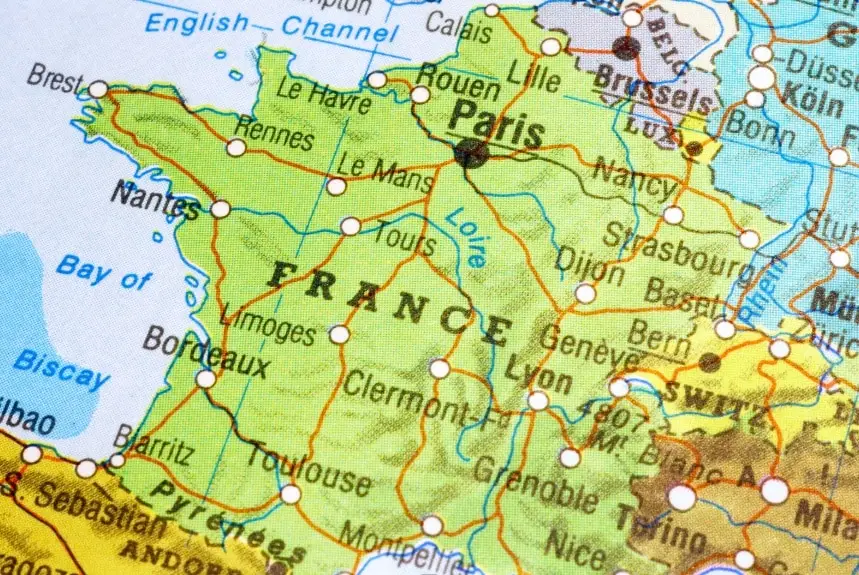
Electric cars: guide by city and region

Buying an electric car using local benefits and grants just got easier with Beev. Electric cars are becoming increasingly popular in towns and regions all over France. They offer many advantages, including savings on fuel and maintenance costs, as well as greater environmental protection.
What local aid is available?
In addition to national subsidies, many local authorities offer support for the purchase of electric cars. This assistance can take the form of ecological bonuses, conversion bonuses or subsidies. The amount of support varies according to the town or region.
For example: the Île-de-France region is offering €6,000 in aid for the purchase of a new or used electric vehicle costing less than €50,000.
How can I benefit from local aid?
To find out what local assistance is available in your town or region, you can contact your town hall, departmental council or regional council. You can also consult our dedicated pages below. Beev can help you find out about the local support available in your town or region.
Buy your electric car at a great price and enjoy the benefits of electric driving!
Auvergne-Rhône-Alpes
Lyon

Like all major French cities, Lyon is keen to develop the use of electric cars. In fact, electric cars, which emit no CO2 or noise pollution, are often favoured by cities.
- Total number of charging points: 162
- Of which fast terminals: 20
- Percentage of fast terminals: 12.35%
- Free parking spaces for EVs: No
- Local aid for the purchase of an EV: Yes
Beev Eco Score :
1,75
Grenoble
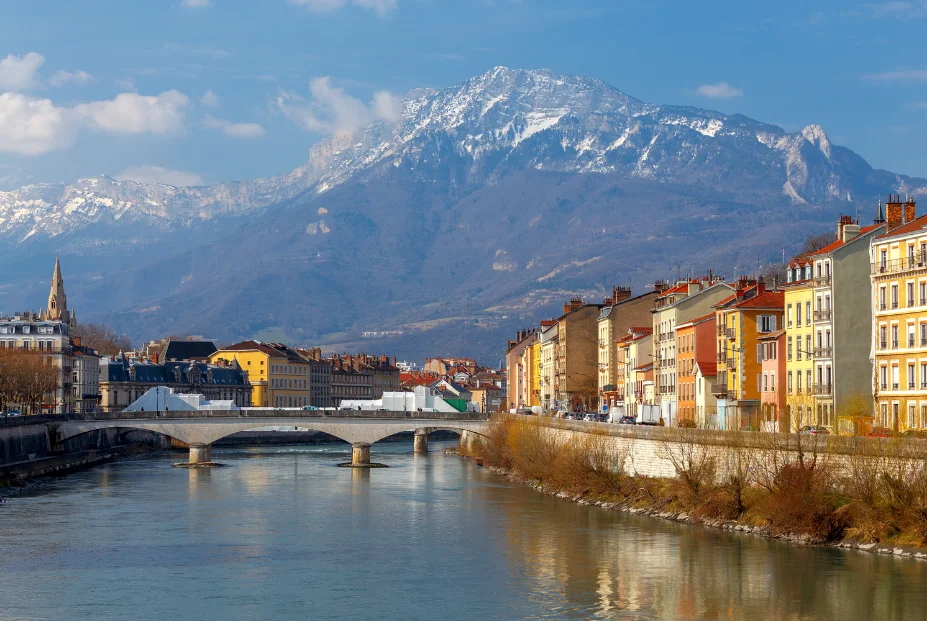
Grenoble has become a low-emission zone (ZFE) because the scheme has been extended to the car fleet. Grenoble-Alpes Métropole's aim is to reduce nitrogen oxide emissions by 75% in 2026 compared with 2017.
- Total number of charging points: 43
- Of which fast terminals: 8
- Percentage of fast terminals: 18.60%
- Free parking spaces for EVs: Yes
- Local aid for the purchase of an EV: Yes
Beev Eco Score :
4,5
Brittany
Rennes
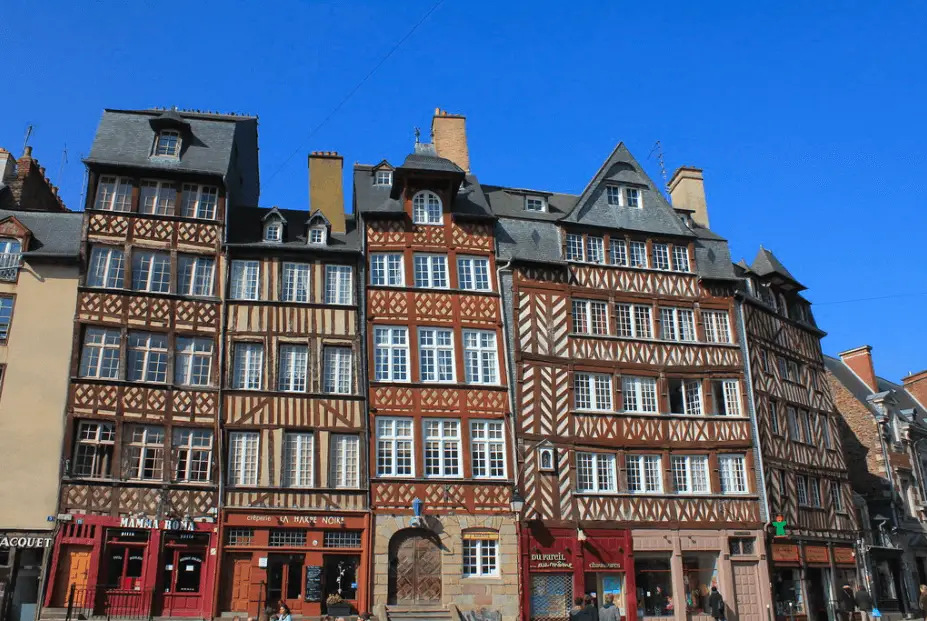
From 2030, deliveries using diesel-powered vehicles will be banned in Rennes! In addition, the Town Hall has announced that it is studying a plan for a low-emission zone (ZFE), to be introduced before 2030.
- Total number of charging points: 68
- Of which fast terminals: 14
- Percentage of fast terminals: 20.59%
- Free parking spaces for EVs: No
- Local aid for the purchase of an EV: Yes
Beev Eco Score :
1
Great East
Strasbourg
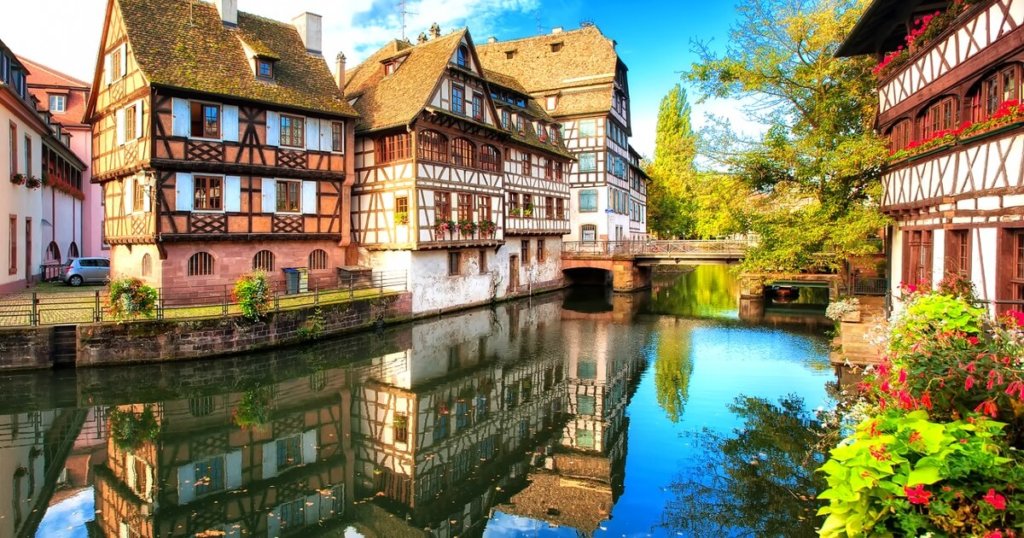
In 2018, the City and theStrasbourg Eurometropolis wish to encourage the use of low-emission vehicles in order to reduce pollution and improve air quality. A prefiguration ZFE has been in place for delivery vehicles in Strasbourg city centre since 1 September 2018.
- Total number of charging points: 108
- Of which fast terminals: 5
- Percentage of fast terminals: 5.56%
- Free parking spaces for EVs: Yes
- Local aid for the purchase of an EV: Yes
Beev Eco Score :
4,25
Reims

From 1 September 2021Reims is actively promoting the use of electric vehicles to reduce pollution and improve air quality through its Low Emission Zone (ZFE). With this in mind, the city has installed ten charging points for electric vehicles in various car parks, offering 34 charge points at 16 sites.
- Total number of charging points: 74
- Of which fast terminals: 5
- Percentage of fast terminals: 6.76%
- Free parking spaces for EVs: Yes
- Local aid for the purchase of an EV: Yes
Beev Eco Score :
2,75
Nancy

From 1ᵉʳ January 2025A Low Emission Zone (ZFE) will be introduced by the city of Nancy. The aim is to reduce pollution and promote more sustainable mobility. The Greater Nancy metropolitan area has already introduced 40 charging stations to encourage people to use electric vehicles.
- Total number of charging points: 33
- Of which fast terminals: 6
- Percentage of fast terminals: 18.18%
- Free parking spaces for EVs: Yes
- Local aid for the purchase of an EV: Yes
Beev Eco Score :
3,5
Hauts-de-France
Lille
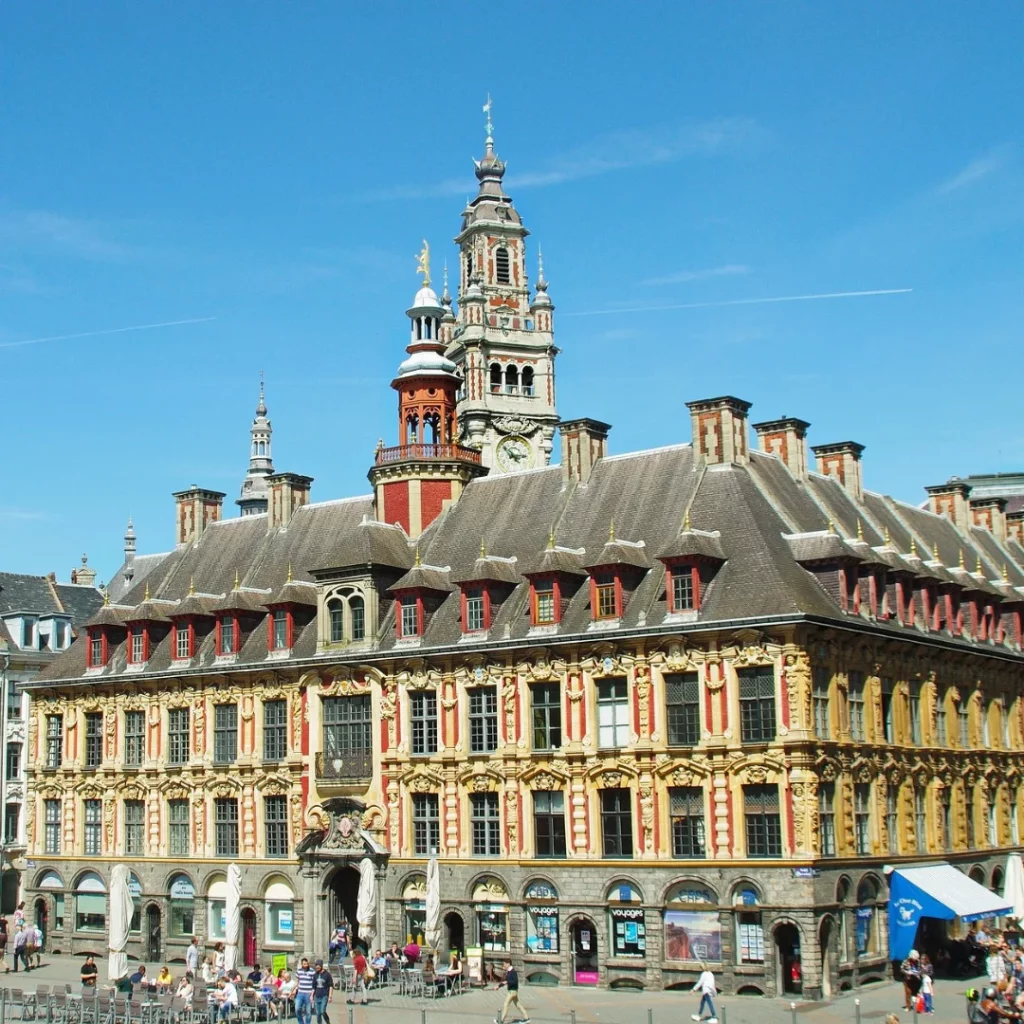
Since 2021, the Lille EPZ has been in place, and cars with Crit'air 4 and 5 stickers are no longer allowed to drive in the zone. These measures apply to both private and commercial vehicles.
- Total number of charging points: 60
- Of which fast terminals: 8
- Percentage of fast terminals: 13.33%
- Free parking spaces for EVs: No
- Local aid for the purchase of an EV: Yes
Beev Eco Score :
1,75
Île-de-France
Paris
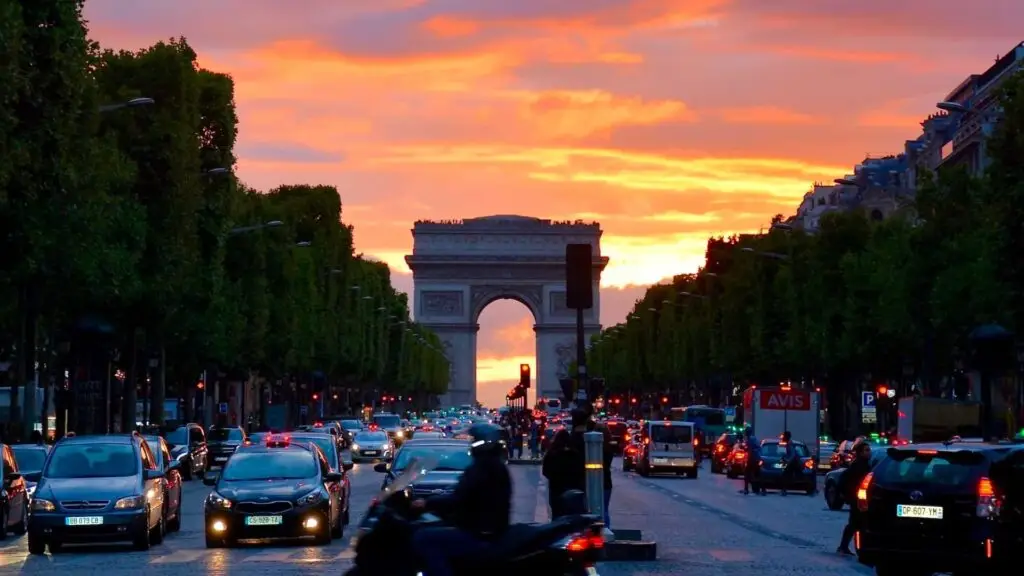
Paris City Council is encouraging the use of these vehicles with a number of initiatives. The aim is to encourage users to abandon petrol and diesel vehicles.
From 2021, more than 47 municipalities in Greater Paris have banned the most polluting vehicles (Crit'Air 5 vehicles).
- Total number of charging points: 1366
- Of which fast terminals: 21
- Percentage of fast terminals: 1.54%
- Free parking spaces for EVs: Yes
- Local aid for the purchase of an EV: Yes
Beev Eco Score :
4,25
Nanterre

Like the 79 other communes, Nanterre is part of the Greater Paris EPZ.
In Nanterre, since June 2021, diesel vehicles built before 2006 (Crit'Air 4 & 5 stickers & not classified) are no longer allowed to drive from Monday to Friday from 8 am to 8 pm within the perimeter of the A86 (79 communes).
Since July 2022, diesel vehicles built before 2011 (Crit'Air 3 & 4 & 5 stickers & not classified) and petrol vehicles built before 2006 are no longer allowed to drive from Monday to Friday between 8am and 8pm in Nanterre or within the perimeter of the A86.
- Total number of charging points: 59
- Of which fast terminals: 8
- Percentage of fast terminals: 13.56%
- Free parking spaces for EVs: Yes
- Local aid for the purchase of an EV: Yes
Beev Eco Score :
3,75
Créteil

Since 2021, the "low emission zones" (ZFE) project has prohibited access to the most polluting vehicles, based on the principle of Crit'Air stickers. More than 47 municipalities in Greater Paris, including Créteil, have introduced measures to combat pollution.
- Total charging points: 49
- Of which fast terminals: 10
- Percentage of fast terminals: 20.41%
- Free parking spaces for EVs: Yes
- Local aid for the purchase of an EV: Yes
Beev Eco Score :
4,25
Versailles

In November 2018, La métropole du Grand Paris (which includes Versailles) voted to ban diesel vehicles over 18 years old and petrol vehicles over 21 years old from July 2019, which helps to encourage the use of low-emission vehicles with the aim of reducing pollution and improving air quality.
- Charging stations in total: 35
- Of which fast terminals: 6
- Percentage of fast terminals: 17.14%
- Free parking spaces for EVs: Yes
- Local aid for the purchase of an EV: No
Beev Eco Score :
1
Levallois-Perret

Levallois-Perret is part of the Greater Paris metropolitan area. The city has set up a Low Emission Zone with the aim of reducing negative emissions, encouraging residents to use electric vehicles and improving air quality. To this end, it has also installed 26 public charging points to date.
- Total number of charging points: 25
- Of which fast terminals: 6
- Percentage of fast terminals: 24.00%
- Free parking spaces for EVs: Yes
- Local aid for the purchase of an EV: No
Beev Eco Score :
0,75
Boulogne-Billancourt
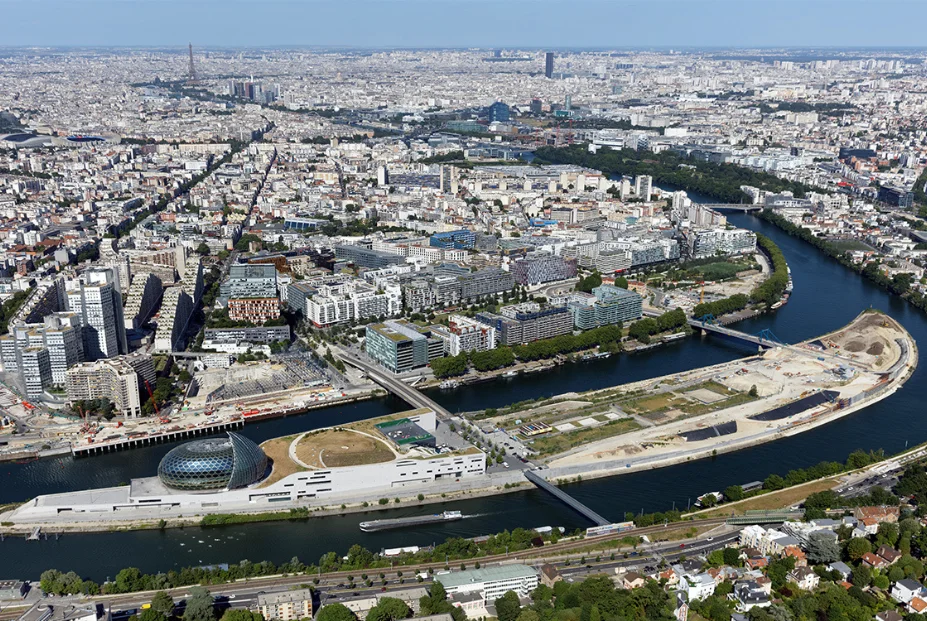
Since 2021, more than 47 communes in Greater Paris, including Boulogne-Billancourt, have banned the most polluting vehicles, according to Crit'Air. Boulogne-Billancourt Town Hall is encouraging the use of these vehicles with a number of initiatives and is committed to a better city.
- Total number of charging points: 27
- Of which fast terminals: 5
- Percentage of fast terminals: 18.52%
- Free parking spaces for EVs: Yes
- Local aid for the purchase of an EV: Yes
Beev Eco Score :
4,25
Normandy
Rouen

To encourage the adoption of electric cars, Rouen metropolitan area was one of the first to install recharging stations on its territory, and has been doing so since 2011. Since then, a substantial network of charging points has been developed in the city, with the aim of encouraging users to switch to electric cars, while remaining as free as before.
- Total number of charging points: 192
- Of which fast terminals: 10
- Percentage of fast terminals: 5.21%
- Free parking spaces for EVs: Yes
- Local aid for the purchase of an EV: Yes
Beev Eco Score :
4,5
New Aquitaine
Bordeaux

Like all major French cities, Bordeaux is keen to develop the use of electric cars. The city of Bordeaux is committed to promoting low-pollution urban mobility, and would like to ban diesel vehicles by 2035 and petrol vehicles in the longer term.
- Total charging points: 127
- Of which fast terminals: 10
- Percentage of fast terminals: 7.87%
- Free parking spaces for EVs: Yes
- Local aid for the purchase of an EV: Yes
Beev Eco Score :
4,75
La Rochelle
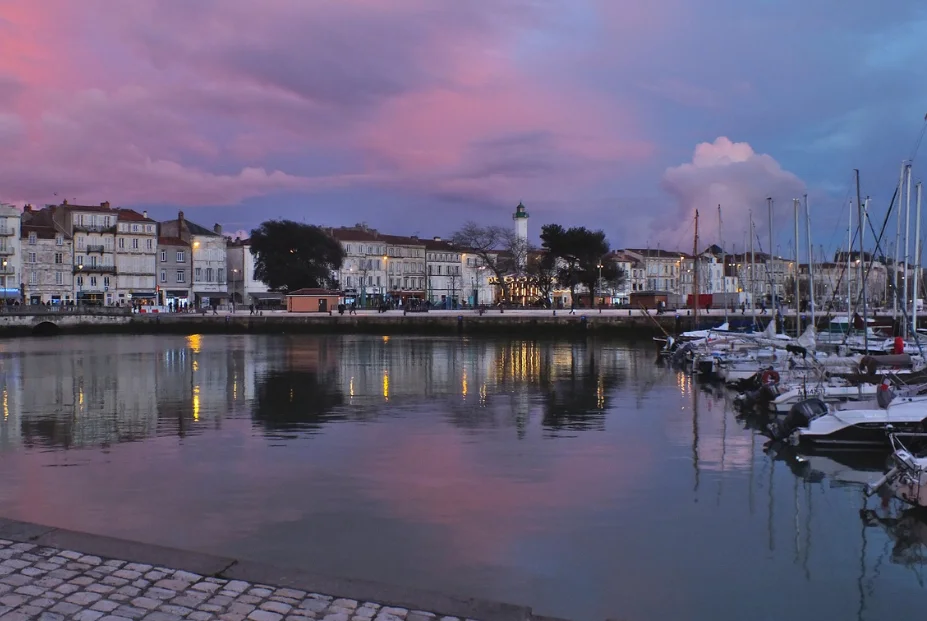
With the aim of achieving carbon neutrality by 2040, La Rochelle has been a pioneer in urban mobility and ecomobility for over 40 years. In order to achieve the LRTZC (La Rochelle Territoire Zéro Carbone) award, the urban area is committed to the Cit'ergie 2021 action plan, and in particular to the development of low environmental impact mobility.
- Total number of charging points: 18
- Of which fast terminals: 4
- Percentage of fast terminals: 22.22%
- Free parking spaces for EVs: Yes
- Local aid for the purchase of an EV: Yes
Beev Eco Score :
4
Occitania
Toulouse

Toulouse, as well as being the pink city, is now aspiring to become the green city. In recent years, the city has developed a strong interest in reducing pollution on its streets. At least, that was one of the themes discussed at the Zéro Carbone event held on 14 December 2020.
- Total charging points: 211
- Of which fast terminals: 50
- Percentage of fast terminals: 23.70%
- Free parking spaces for EVs: Yes
- Local aid for the purchase of an EV: Yes
Beev Eco Score :
3
Montpellier

The city of Montpellier is currently developing a plan to speed up the city's ecological transition and encourage local residents to use electric cars. Electric cars produce no CO2 emissions or noise pollution, and more and more cities are promoting their use through a range of action plans to make them more widely available.
- Total number of charging points: 96
- Of which fast terminals: 10
- Percentage of fast terminals: 10.42%
- Free parking spaces for EVs: Yes
- Local aid for the purchase of an EV: Yes
Beev Eco Score :
4,75
Nîmes

Nîmes is planning to introduce a low-emission zone (ZFE) in its city centre by 2025. This news has particularly displeased the region's motorcyclists, who would be banned from using their diesel vehicles in the city.
- Total number of charging points: 103
- Of which fast terminals: 10
- Percentage of fast terminals: 9.71%
- Free parking spaces for EVs: Yes
- Local aid for the purchase of an EV: Yes
Beev Eco Score :
3,25
Pays de la Loire
Nantes

In Nantes, buyers of electric cars are exempt from registration tax. However, the other forms of assistance available nationwide, such as the €7,000 ecological bonus and the €5,000 conversion premium, remain available.
- Total number of charging points: 56
- Of which fast terminals: 10
- Percentage of fast terminals: 17.86%
- Free parking spaces for EVs: Yes
- Local aid for the purchase of an EV: Yes
Beev Eco Score :
4
Angers

The city of Angers has voted to create a Low Emission Zone (ZFE) in the centre of the city. The zone was established on 1 July 2021 and applies to Crit'air 5 and 4 goods vehicles.
- Total number of charging points: 117
- Of which fast terminals: 10
- Percentage of fast terminals: 8.55%
- Free parking spaces for EVs: Yes
- Local aid for the purchase of an EV: Yes
Beev Eco Score :
3,75
Le Mans

Le Mans will introduce a Low Emission Zone (LEZ) from 2025, as part of the Climate Bill, which aims to extend these zones to conurbations with more than 150,000 inhabitants. This measure restricts access to the city centre for combustion-powered vehicles that are six years old or more.
- Total number of charging points: 105
- Of which fast terminals: 10
- Percentage of fast terminals: 9.52%
- Free parking spaces for EVs: Yes
- Local aid for the purchase of an EV: Yes
Beev Eco Score :
3,25
Provence-Alpes-Côte d'Azur
Marseille

Like all major French cities, the Aix Marseille Provence metropolitan authority has announced the scope of its Low Emission Zone (ZFE), which covers 19km² in the heart of Marseille and is bounded by the Prado, Rabatau, Jarret and Plombières areas, as well as the Euromed zone. The city is therefore keen to develop the use of electric cars.
- Total charging points: 266
- Of which fast terminals: 50
- Percentage of fast terminals: 18.80%
- Free parking spaces for EVs: No
- Local aid for the purchase of an EV: Yes
Beev Eco Score :
1,75
Nice
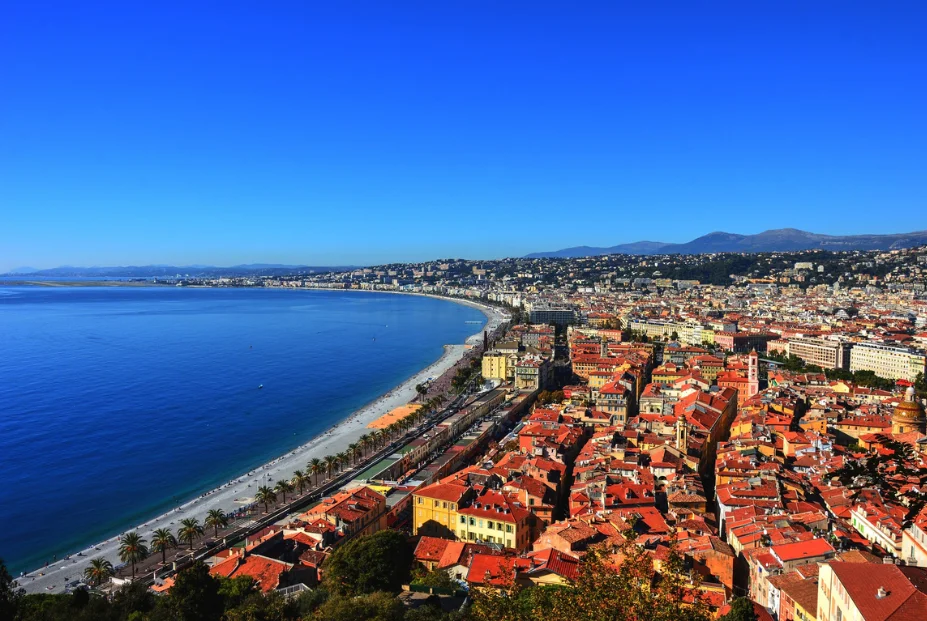
Like several other French cities, Nice has already introduced a low-emission mobility zone (ZFE-m) from 2021. These ZFE-m will give local authorities the option of limiting access to an area to the most polluting vehicles.
- Total number of charging points: 187
- Of which fast terminals: 40
- Percentage of fast terminals: 21.39%
- Free parking spaces for EVs: Yes
- Local aid for the purchase of an EV: No
Beev Eco Score :
0,5
Toulon
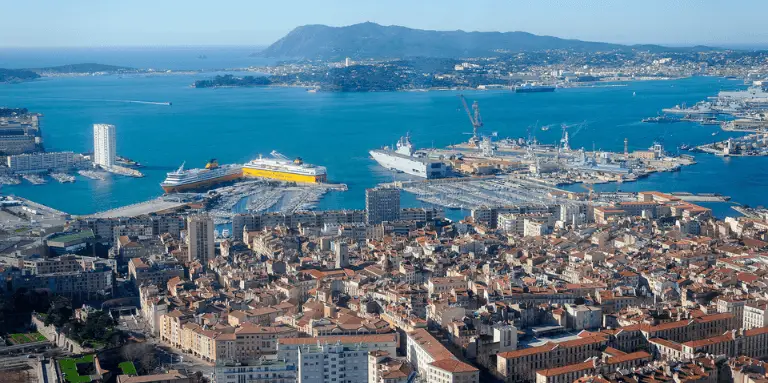
Toulon has had a Low Emission Zone since 1 April 2023. The Toulon Provence Méditerranée (TPM) metropolitan authority set up the zone to limit air pollution. It has also installed recharging facilities (90 since December 2019), with the aim of reaching 150 over the next few years. This will facilitate the use of electric vehicles.
- Total charging points: 90
- Of which fast terminals: 10
- Percentage of fast terminals: 11.11%
- Free parking spaces for EVs: Yes
- Local aid for the purchase of an EV: Yes
Beev Eco Score :
4,5
Seine-Maritime
Le Havre
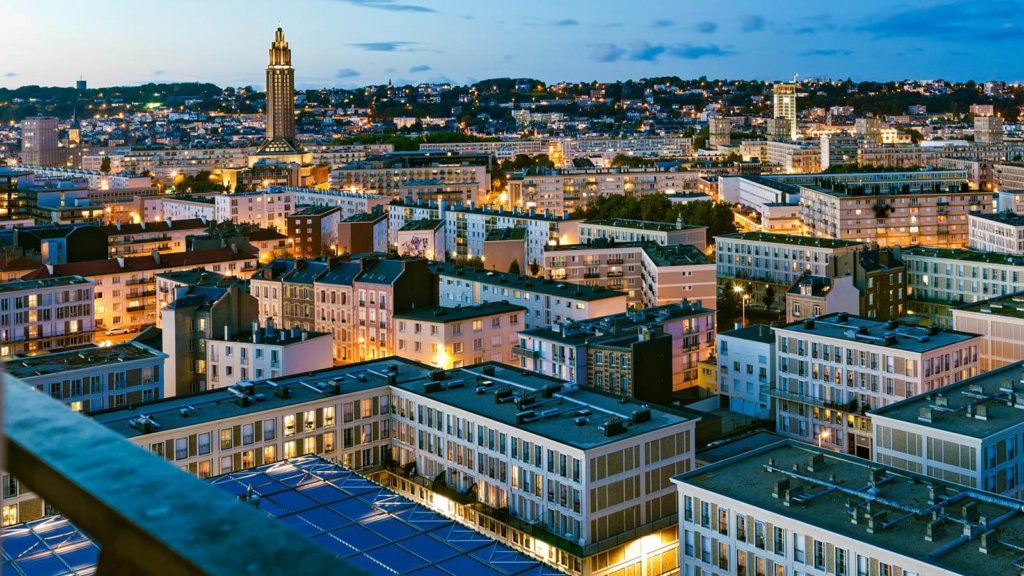
Le Havre is not currently part of a low-emission zone (ZFE), but it will soon have to comply with the rules of the Mobility Orientation Law (LOM), which aims to redefine mobility for the general public. In 2025, diesel vehicles built before 2011 and petrol vehicles built before 2006 (Crit'Air 3 & 4 & 5 stickers & not classified) will no longer be allowed to drive Monday to Friday from 8am to 8pm in towns with more than 150,000 inhabitants.
- Total number of charging points: 105
- Of which fast terminals: 10
- Percentage of fast terminals: 9.52%
- Free parking spaces for EVs: Yes
- Local aid for the purchase of an EV: Yes
Beev Eco Score :
2,5